Knight Rides: Reinventing the Wheel
Laterally stiff, vertically compliant: it’s a catchy mantra that’s used to describe the perfect ride quality. You hear it bandied about all over certain bike forums. But what does it actually mean? And is it even a thing, or is it just marketing speak to make riders covet new technology and gear?
First off, let me just say it really is a thing. Laterally stiff, vertically compliant (LSVC) describes a ride quality which is comfortable (flexes vertically) yet highly exacting in terms of steering and handling (laterally stiff). In other words the amount of shreditude is directly proportionate to the presence or lack of LSVC.
No matter what kind of riding you do—DH, Enduro, XC, BMX, or any other acronyms—your wheels deflect and change shape as they roll over different terrain. If you’re an average rider—and let’s face it, few of us actually ride like Bernard Kerr or Aaron Gwin—you probably float less than you think you do. Your wheels are constantly not just rolling over things, but also smashing into them.
When you run into a rock or root your wheel sort of smushes a bit (a highly technical term) and becomes ever so microscopically ovalized for a moment. In a fraction of a fraction of a second, the rim returns to its normal round state. Having vertical compliance in your wheels means your ride will feel smoother, more comfortable—that you won’t feel the chatter and noise of all those micro-impacts as you roll over rough terrain.
Lateral stiffness is all about tracking and how well and quickly a wheel responds to rider handling. It’s what lets you carve a series of berms with precision, or allows a smooth transfer from one direction to another without ending up high siding into the brush. Lateral stiffness puts the win in your spin.
Nearly every wheel manufacturer under the sun claims to offer LSVC, but one is rising above the noise to emerge as an industry leader, producing not only faster, but also safer wheels. That speed/safety combo comes directly from superior stiffness and compliance characteristics.
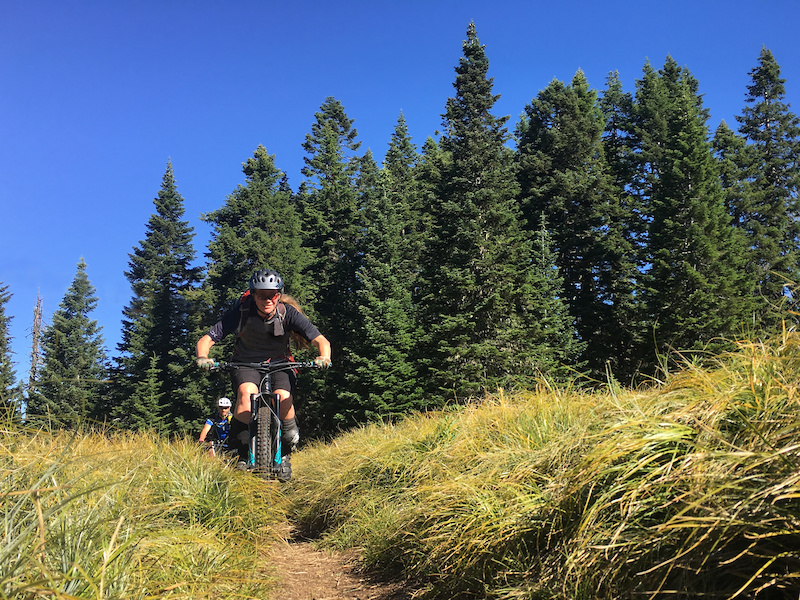
Top: #sockdoping and #superwheeldoping in Oakridge, Oregon. Bottom: Hammering the bunchgrass clearing at the top of Alpine trail.
Knight Rides
Enter Knight Composites, the company that is literally reinventing the wheel. Based in Bend, Oregon, Knight entered the wheel market in 2013 when bicycle composite industry veterans Beverly Lucas and Jim Pfeil joined forces with uber-engineer Kevin Quan to engineer their dream wheels. Their combined pedigree includes product design and manufacturing for ENVE, Reynolds, FELT Bicycles, and Cervelo, to name a few.
The Knight team invested tremendous amounts of time and energy to perfect the design and manufacturing of their rims. Where most other manufacturers focus R&D on the leading edge of the wheel—the forward aspect of the wheel which cuts into the wind—Knight discovered that by focusing on the trailing edge they could create a wheel which is significantly faster than the competition.
By employing expanded polystyrene layup (EPS) and aerospace-grade Toray carbon fiber—the same stuff used to make airplane wings and the International Space Station—Knight was able to design a rim which is lighter, stiffer, and—yes—more vertically compliant than leading composite wheel manufacturers.
All this tech-talk doesn’t amount to a hill of beans unless it translates into ride quality. The technology alone won’t take you from weekend warrior to World Cup, but those of us who ride for love, not money, the performance gains translate as reduced rider fatigue. Simply put, you can rider harder, faster, more comfortably, for longer.
So we’ve ridden Knight wheels and found them to live up to their claims and then some. Of course, we fall into the not-quite-Aaron-Gwin rider classification so we asked a few more capable riders about their experience riding Knight.
“I spend a lot of time riding Enve wheels and I though the ride quality of the Knight Enduro wheels are excellent—well above average,” said David Turner, owner of Turner Bicycles. “These are next level carbon fiber rims—great for their weight class, plenty stiff, but quieter and more comfortable.”
Dave’s colleague, Turner Bicycles' product manager Erik Trogden chimed in: “ENVE is definitely the benchmark. Knight’s strength is in focusing on rim design and not getting into hubs as well. I can’t think of a stiffer wheel when it comes to cornering.”
Turner agreed and went on to add, “Some rims have become too stiff—like riding an iron beam. Knight’s wheels strike a perfect balance between high performance stemming from lateral stiffness, while calming the high frequency vibration with superior vertical compliance.”
“The best test is to set up a rigid bike or hardtail and ride,” added Trogden. “I ride all the major wheel brands—Enve, Reynolds, Industry 9, Easton, the list goes on…Comparing them side-by-side I’d say Knights feel safer, lighter, faster and more precise. And as a bonus their tubeless set up is incredibly easy—you can do it at home in your garage with a floor pump.”
Tech Talk
Knight’s mountain lineup includes the 27.5 Enduro, 27.5+ Plus, and 29 Trail wheelsets. Each maximizes stiffness-to-weight ratio compared to traditional bladder molding and the proprietary carbon layup creates a smooth-riding yet very snappy wheel. External nipples make maintenance easier than internally-nippled rim designs. Angled spoke drilling provides better bracing strength; when it comes to spoke pull-through all of Knight’s mountain rims are 30% stronger than molded spoke holes.
For the weight weenies among us, Knight’s rims and complete wheels are extremely competitive, For example, the 27.5 Enduro wheels laced to DT Swiss 240 hubs with Sapim CX-Ray spokes weighs in at 1513g per wheel set.
All Knight mountain rims come with a 5-year warranty and lifetime crash replacement (50% of retail price). The wheels are hand-built in Bend, Oregon using DT Swiss 240 hubs (other options available) and are set up tubeless ready. Retail prices range from $2199 – $2399 per wheel set. Maximum shreditude is included in every purchase.
Ask your dealer for Knight Composites rims and wheels, distributed exclusively in the US by Cyclone Bicycle Supply.
For more information, visit Knight Composites’ website.
 | ÜMA KLEPPINGER is Cyclone Bicycle's Minister of Morale. When she's not out making the good noise about our brands she can be found riding hero dirt or casing jumps at the local bike park. Her Meyers-Briggs personality type is LMAO and she is the (disputed) World Champion of Air Hockey. Üma is a freelance editorial writer in her spare time, and has authored and published a book called BikeYoga: A Whole Body Tune-Up. She is working on a second book—a work of creative nonfiction—about life in and out of the saddle. |
Author Info:
Must Read This Week
Sign Up for the Pinkbike Newsletter - All the Biggest, Most Interesting Stories in your Inbox
PB Newsletter Signup
0 Comments
Login or Sign Up
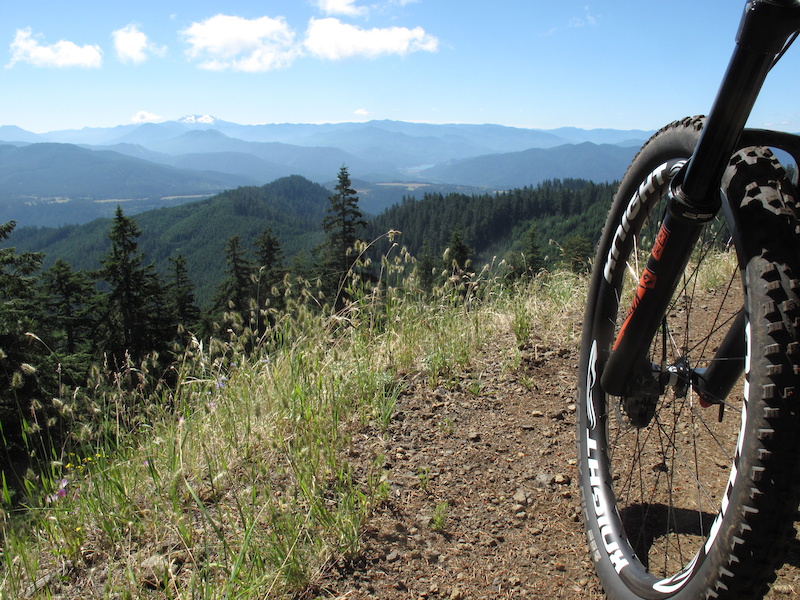
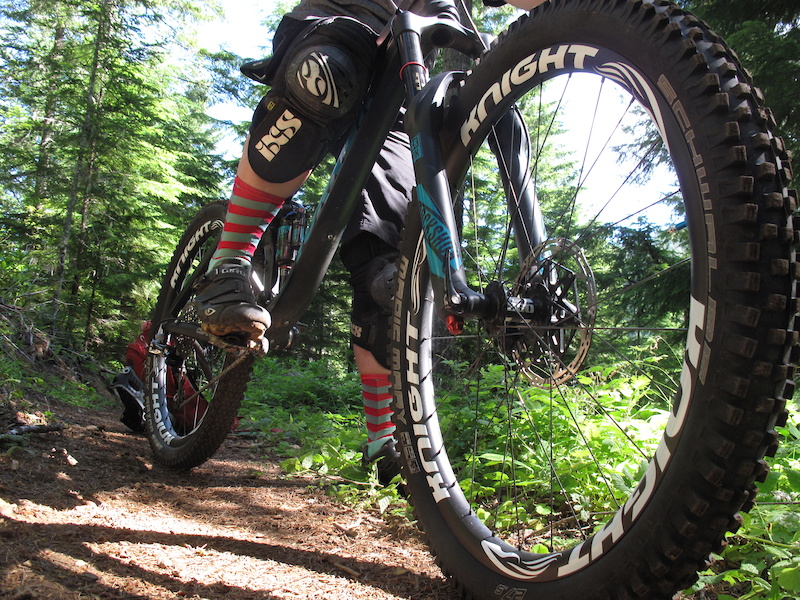
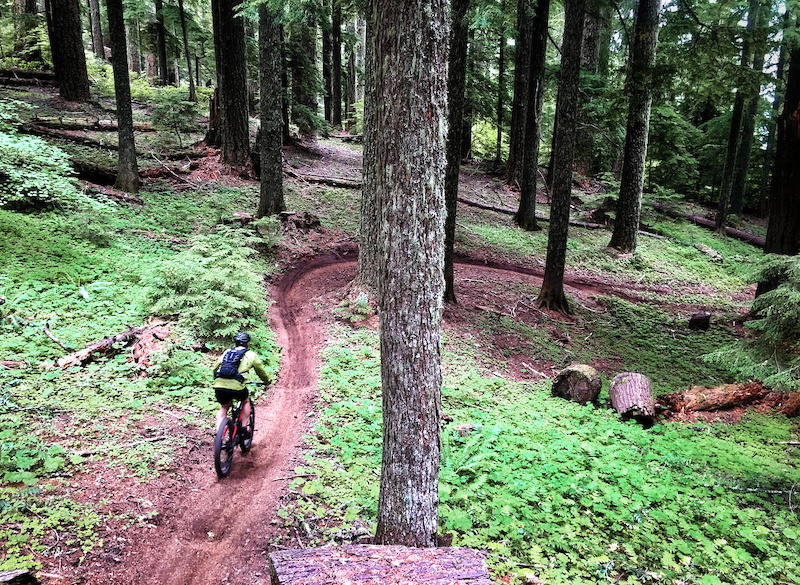
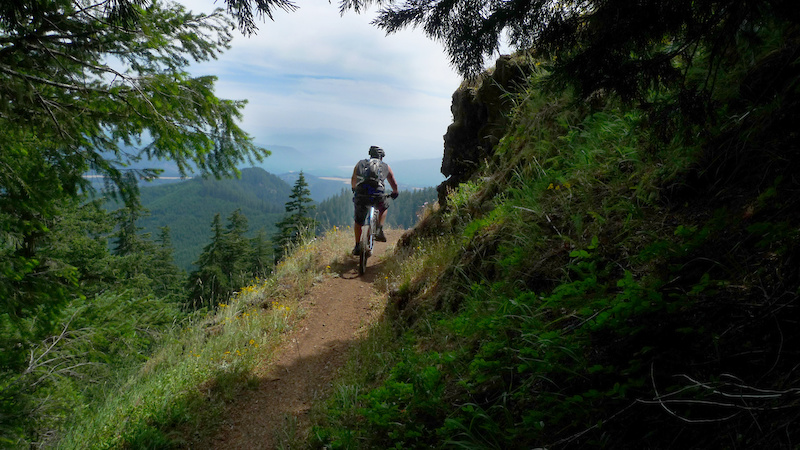

 Member since Jun 27, 2016
Member since Jun 27, 2016